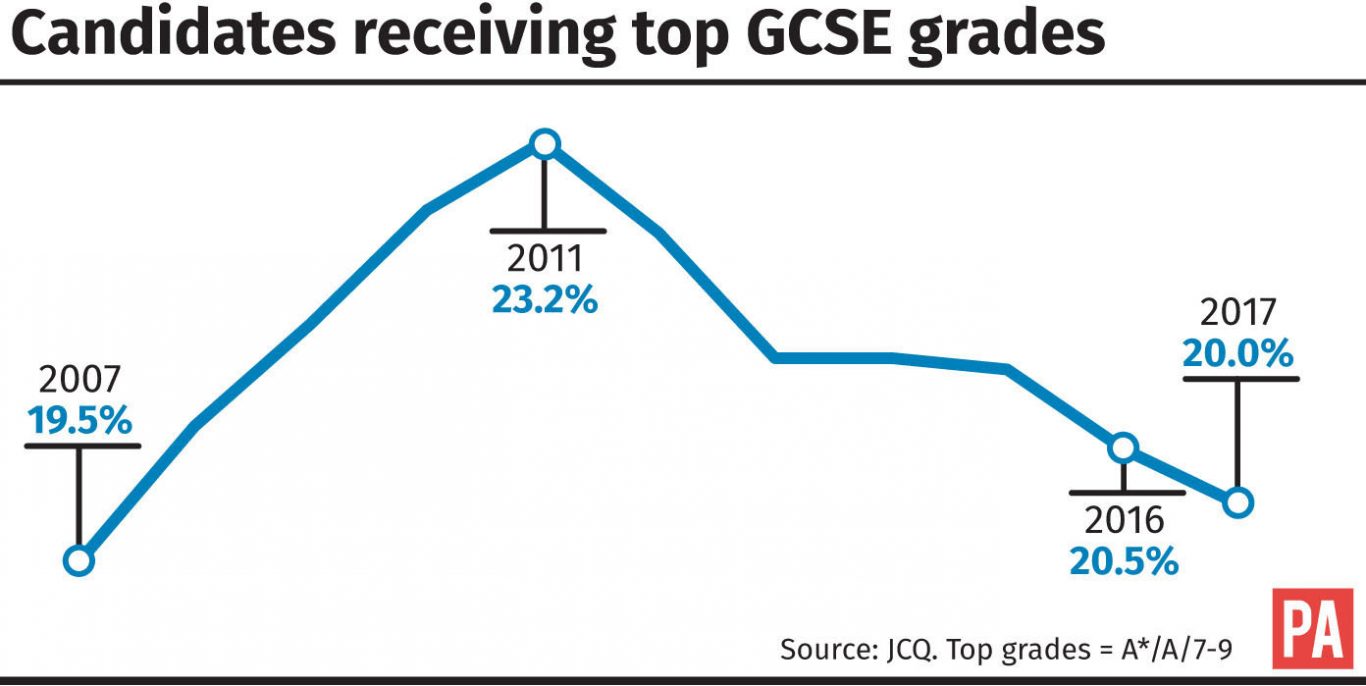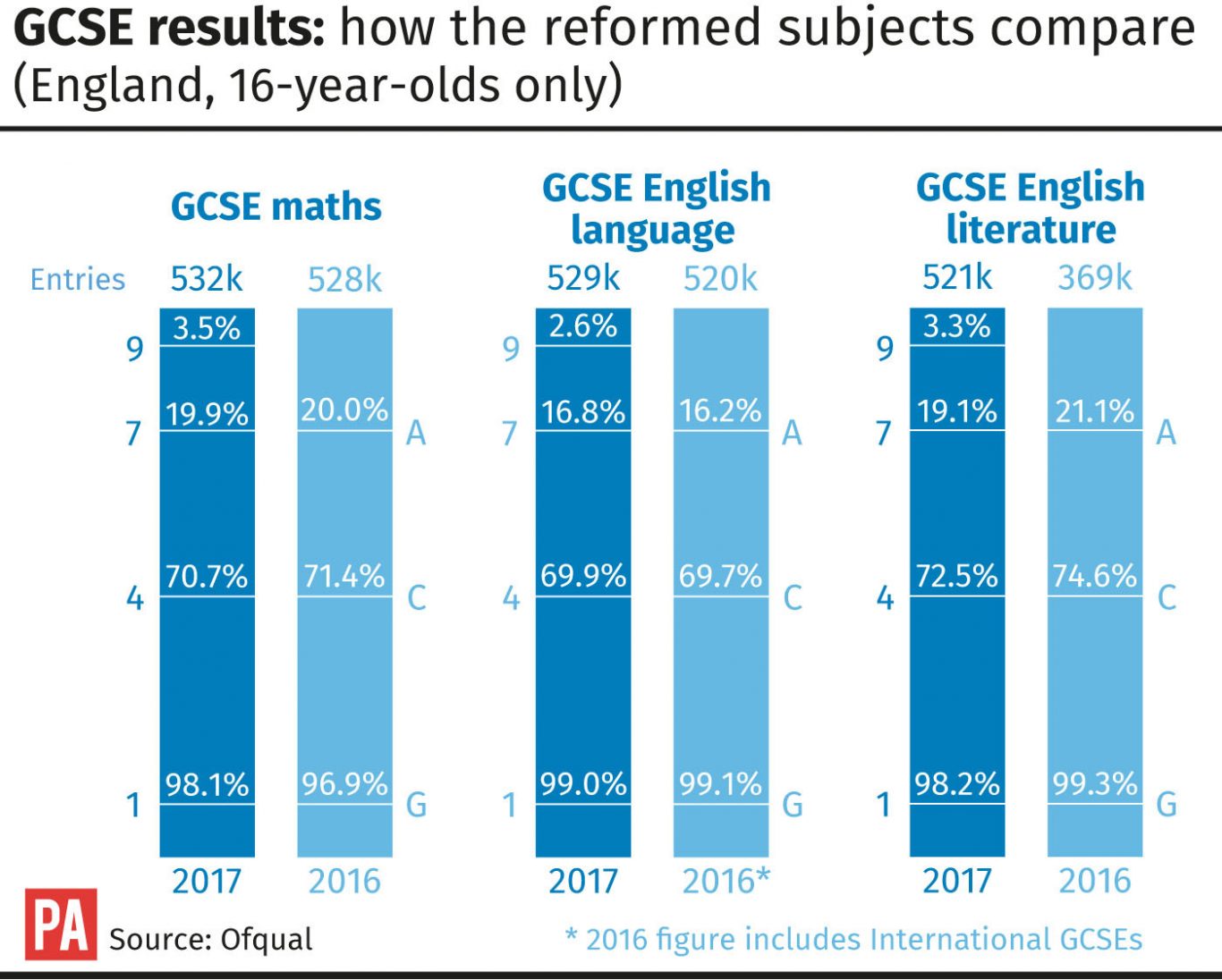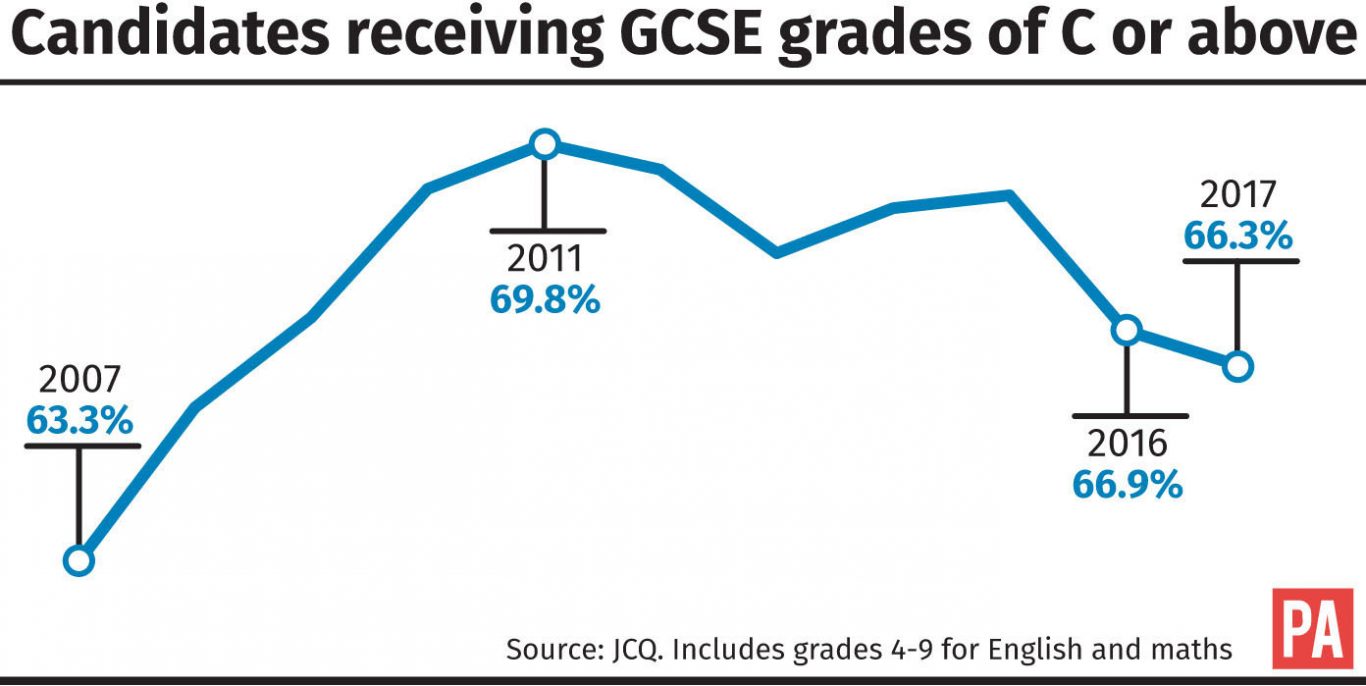Praise for pupils as results are unveiled amid ‘sea of change’ for curriculum
English and maths – key GCSEs for all teenagers – are the first to move across to a new system.

Around 50,000 English and maths GCSEs were awarded the new highest grade this summer, amid the biggest shake-up of exams in England for a generation.
Overall pass rates fell, with around a fifth of entries in England, Wales and Northern Ireland achieving at least an A or 7 under the new system, while two-thirds gained at least a C or 4.

Under the overhaul, traditional A* to G grades are being gradually replaced in England with a 9 to 1 system.
English and maths – key GCSEs for all teenagers – are the first to move across, with other subjects following over the next two years.
Among 16-year-olds in England, around 18,600 maths entries scored a 9 – the new highest grade – while almost 31,000 achieved the top mark in the two English GCSEs combined.
Geoff Barton, general secretary of the Association of School and College Leaders, said teachers and pupils had “performed miracles” in “very challenging circumstances”.
Statistics published by the Joint Council for Qualifications (JCQ) show that in England:

:: In maths, 3.5% of entries – around 18,617 in total – scored a 9
:: In English, 2.6% of entries – around 13,754 – scored a 9
:: In English literature, 3.3% – around 17,187 – scored a 9
:: Girls secured around two-thirds of the 9 grades

Across all UK entries for the new courses, around 50,700 achieved a 9.
Fewer candidates achieved a 9 than the proportion who gained an A* under the traditional A*-G grading system, following the deliberate move to change the system to allow more differentiation, particularly between the brightest candidates.
There are now three top grades – 7, 8 and 9 – compared with two under the old system – A* and A – with A* results now split into 8s and 9s.
The grading switch is part of wider reforms designed to make GCSEs more rigorous and challenging.
Maths in particular has more content, and in both subjects there has been a move away from coursework and pupils now sit all exams at the end of the two-year courses, rather than throughout.
Although the exams have been made more demanding, broadly the same proportions of candidates have achieved key passes – such as at the A/7 boundary, due to processes put in place to ensure that results are comparable and that students taking the first new courses are not disadvantaged.
Data published by exams regulator Ofqual shows that among 16-year-olds in England, 19.9% of maths entries were awarded at least a 7 or higher this year, similar to 2016 when 20% achieved an A or A*.
In English language, 16.8% scored at least a 7, compared with 16.2% who gained at least an A last year, while in English literature, 19.1% achieved between 7 and 9, compared with 21.1% of A-A* grades last year.
Mr Barton said: “Congratulations to the pupils and their teachers on this year’s GCSE results which have been achieved in very challenging circumstances. They have performed miracles amidst a sea of curriculum change which continues unabated next year. They deserve tremendous credit for their hard work.”
Ofqual chief regulator Sally Collier said: “Today’s results reflect years of careful planning.”
